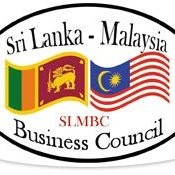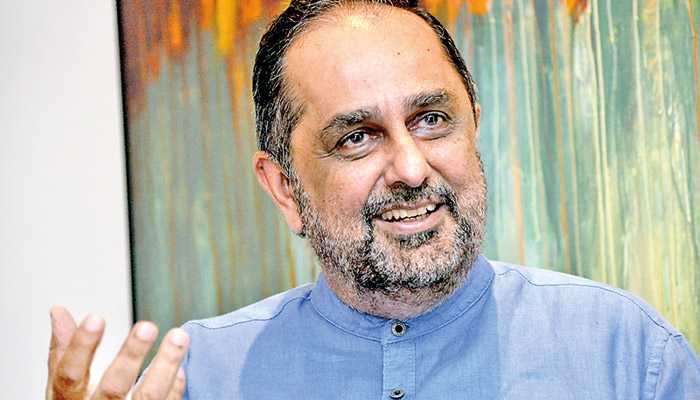In more than one respect, the crisis over Iran's nuclear programme is similar to the North Korean nuclear dispute. The United States has labelled North Korea and Iran as rogue states and the labelling certainly serves Washington's global interests and agenda.
The neocon-scripted document titled Project for the New American Century, which some critics have slammed as Washington's Mein Kampf, expresses concern over US security interests in both East Asia and West Asia.
On East Asia, the document says, "the security of this strategically significant and increasingly tumultuous region has suffered from American neglect". It notes that East Asia has long been an area of great interest to China. "In recent years, China has gradually increased its presence and operations in the region."
The PNAC recommends that raising US military strength in East Asia is the key to coping with the rise of China to great-power status. "For this to proceed peacefully, US armed forces must retain their military preeminence and thereby reassure our regional allies. In Northeast Asia, the United States must maintain and tighten its ties with the Republic of Korea and Japan," says the document authored by hardcore neocons such as former Vice-President Dick Cheney, his top national security assistant, Lewis Libby; former Defence Secretary Donald Rumsfeld; his deputy Paul Wolfowitz; former Texas governor Jeb Bush and leading Bush administration figures such as John Bolton, Richard Perle and Eliot Abrams among others.
Former President George W. Bush adopted the PNAC document as his foreign and defence policy guide. When Bush lumped together Iran, Iraq and North Korea and said these countries belonged to an axis of evil, he was simply implementing the recommendations of the PNAC.
Though Bush has now retired and Barack Obama has taken the reins, the PNAC has not ceased to be a part of US policy guidelines. It appears that what the Bush administration did crudely the present administration is doing subtly under cover of a pacifist image that Obama has built up for himself.
That Obama gave the defence portfolio to Robert Gates, the man who held it during the last years of the Bush administration, is also an indication that the overall US defence policy remains largely unchanged and what the administration so far has done or undone is largely cosmetic.
In a recent policy statement on nuclear weapons, Obama gave a pledge to nations that the US would not use nuclear weapons as first strike. But he added a rider saying he was carving out an exception for countries like Iran and North Korea that had violated or renounced the nuclear Non-Proliferation Treaty (NPT). In other words, Obama was saying he would not hesitate to use nuclear weapons against Iran and North Korea. Even hawkish Bush did not go to the extreme of threatening these countries with nuclear strikes. But, shockingly, Obama has.
Strengthening the US military presence in North-East Asia began even before Bush came to office. The Clinton administration, making use of its dispute with North Korea over the latter's nuclear programme, sent more troops to South Korea in 1994, along with heavy weapons including Patriot missiles that are capable of shooting incoming enemy missiles in the air. This came barely a few years after the US removed nuclear weapons from South Korea.
The fortification was also aimed at countering possible threats from China. The Bush administration continued the same policy of making a bogey out of North Korea and further strengthened its military presence in South Korea and Japan.

Such military presence and fortification can be justified only if North Korea — with whom the US has not formally ended its war — remains a rogue state with dangerous weapons that threaten to destabilize the region. This is probably why the US is not keen on a Korean unification. A peaceful and unified Korea or a confederated Korea may end the US military presence in the region with people in both Korea and Japan questioning the need for US bases in their countries and agitating for their removal.
Similarly, a rogue state in Iran also serves the US interest. In North-East Asia, the US maintains bases in South Korea and Japan citing the threat from North Korea. In West Asia, the US pointing to the threat from Iran seeks to maintain its numerous bases in Iraq, Qatar and Kuwait. Not only has the US moved into the region, but its allies such as Britain and France have also done the same. France recently opened a massive military base in Abu Dhabi while Britain has its bases in Oman and Bahrain. The crisis in Yemen where two insurrections — one led by the Islamists and the other by the Houti Shiites — have drawn world attention also offers an opportunity for the US to move in and set up base there. The heavy US military presence in West Asia can be justified only if Iran remains a rogue state with an obscure nuclear programme.
A rogue state with nuclear and missile capabilities will increase the demand for US weapons from states that believe the US scare stories and see Iran as a threat. Usually the bulk of the weapons orders goes to the US. With Iran and North Korea testing long-range missiles, the demand for missile interceptors has also gone up. Japan has already invested more than one billion US dollars in joint ventures with US weapons companies to develop and procure missile interceptors. Besides, the Obama administration is also set to infuse US$ 700 million into missile defence programmes in its 2011 budget.
Reviving the bogey, a top US Defence Department official on Wednesday told the Senate Armed Services Committee hearing that defending the United States from the threat of missile attacks by regional actors such as North Korea or Iran was a top priority.
James Miller, Principal Deputy Defence Undersecretary for Policy, said both North Korea and Iran were developing missiles that could carry biological, chemical or nuclear warheads. He said that by 2015, Iran would be able to develop an intercontinental ballistic missile that could reach the US.
Stressing the need for effective anti-missile defence shields, Miller called on the Obama administration to beef up domestic defences against a possible ballistic missile strike and protect allies and US troops deployed abroad from missile attacks by rogue states.
He also recommended that the US go ahead with its planned European missile shield that include deployment of sea- and land-based missile interceptors around the continent as a safeguard against potential missile attacks from Iran.
Earlier, attempts by the US to set up such missile shields in Poland and the Czech Republic evoked angry responses from Russia. Moscow insisted that Washington should abandon the plan because it saw the missile interceptors as being largely aimed at Russian missiles.
To maintain its military presence in West Asia, to deploy anti-missile interceptors in Europe and to boost its armament industry, the US needs a big enemy — an enemy larger than Osama bin Laden's al-Qaeda or so called Islamic terrorists. A nuclear Iran with missile capabilities fits that description. The irony is that the US interests are served only if the enemy is sustained. Therefore, the talk of a possible US attack on Iran is hogwash. A US Defence Department secret memorandum to the White House this week states that Washington has no long-term, effective policy to stop Iran from building a nuclear bomb.
A question that looms large is why the US cannot solve the crises with North Korea and Iran through diplomacy. Unconditional peace talks aimed at normalizing relations can produce outstanding results. North Korea, for instance, has said, time and again, that it is willing to dismantle its nuclear programme provided the US normalises relations and offers an array of concessions. But the US has spurned such offers, describing them as blackmail. The US has even scuttled agreements reached at the six-party talks involving the two Koreas, the US, China, Japan and Russia, provoking Pyongyang to withdraw from the talks.
Both Iran and North Korea understand the US design and play cat-and-mouse games with Washington — a game that has helped them to take forward their nuclear programmes. Washington, of course, will continue to apply pressure on Iran and North Korea through UN sanctions. Analysts say that both Iran and North Korea are capable of surviving such sanctions.
Post Disclaimer | Support Us
Support Us
The sailanmuslim.com web site entirely supported by individual donors and well wishers. If you regularly visit this site and wish to show your appreciation, or if you wish to see further development of sailanmuslim.com, please donate us
IMPORTANT : All content hosted on sailanmuslim.com is solely for non-commercial purposes and with the permission of original copyright holders. Any other use of the hosted content, such as for financial gain, requires express approval from the copyright owners.
 Sri lanka Muslims Web Portal Sri Lanka Muslims News Center
Sri lanka Muslims Web Portal Sri Lanka Muslims News Center



